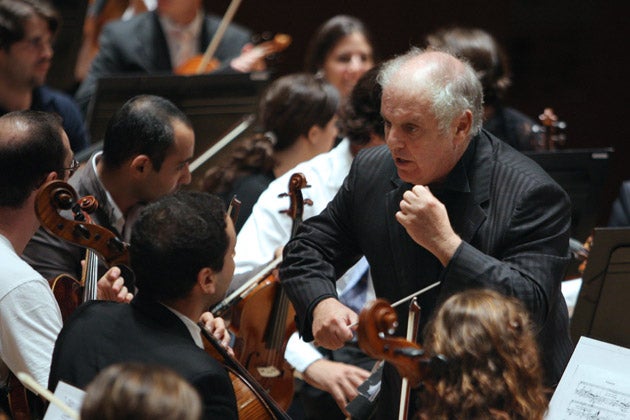Boyd Tonkin: Can writers hit the high notes of hope?
The Week In Books

Your support helps us to tell the story
From reproductive rights to climate change to Big Tech, The Independent is on the ground when the story is developing. Whether it's investigating the financials of Elon Musk's pro-Trump PAC or producing our latest documentary, 'The A Word', which shines a light on the American women fighting for reproductive rights, we know how important it is to parse out the facts from the messaging.
At such a critical moment in US history, we need reporters on the ground. Your donation allows us to keep sending journalists to speak to both sides of the story.
The Independent is trusted by Americans across the entire political spectrum. And unlike many other quality news outlets, we choose not to lock Americans out of our reporting and analysis with paywalls. We believe quality journalism should be available to everyone, paid for by those who can afford it.
Your support makes all the difference.Sometimes writers must envy musicians. If the latter do their job, they bring people blissfully together. If the former stay true to their talent, they often need to specify what keeps people apart. Through his career, the late Palestinian author and scholar Edward Said challenged ruling opinions in the West's political and academic life. And he lived, often wearily, with the storm and stress that struck as a result.
Yet when he came to collaborate with his friend Daniel Barenboim in creating the West-Eastern Divan Orchestra, which has for a decade united young Arab and Israeli players in the pursuit of musical excellence, the keen controversialist became the great conciliator. Said co-founded the most uplifting adventure in harmony in the whole dark history of the modern Middle East.
Spoken by mezzosoprano Waltraud Meier (who sang the leading role), Said's own narrative punctuated the action of Beethoven's Fidelio at last Saturday's Prom. And Barenboim drew from the multinational orchestra that he and Said made a performance of this mighty cry for justice that might have blown down every "separation wall" on earth. Only once have I heard Beethoven's "Leonore 3" overture – with which Barenboim kicked off the opera - played with such bone-rattling ferocity: in a recording of Wilhelm Furtwängler's concert with the Berlin Philharmonic on 28 January 1945, as the conductor's dozen years of servitude to Hitler neared their end. The day before, the Red Army had liberated Auschwitz.
At the end, Maestro Barenboim reminded his ecstatic audience that the orchestra's music trumps its mission, and that not even a "good humanitarian idea" could justify mediocrity. This shared striving does not aim to dissolve distinctions so much as to set them to one side in order to fulfil a task whose means and ends unite all members.
Elena Cheah's invaluable – and rather inspiring – insider's book about the West-Eastern Divan project, An Orchestra Beyond Borders (Verso, £10.99), makes it clear that neither the maestro nor his band dreams of swamping divisions of background and outlook in a warm tide of sound. Rather, as Barenboim's preface puts it, "we do not try to diminish or soften our differences in the orchestra; we do the opposite".
Out of this frank acceptance of doubt, dissent, even prejudice, the players prepare the ground for their sublimely harmonious art. Cheah – herself a cellist in the orchestra – shows via extended interviews, profiles and short reflective essays how Israeli, Egyptian, Palestinian, Jordanian and many other musicians have made thir own personal peace with colleagues by debating, not denying, their mutual suspicions.
The Israeli oboist who had grown up "terrified of Muslims" but who now views the orchestra "like lovers making up after an emotional fight"; the Arab violinist who says that "in the Divan, I mostly learned how to be a human being"; the Egyptian oboist overcome with emotion while playing "Nimrod" from the Enigma Variations in Ramallah on the West Bank: Cheah collects a score of testaments to show how strangers raised in fear and enmity can set about "shucking off the notions of 'us' against 'them'". And sometimes, of course, these globe-trotting youngsters "just want to go shopping".
Could the region's writers ever come together in this way? It seems unlikely. In general, and excepting one-off partnerships such as that of Etgar Keret and Samir El-Youssef, the past decade has seen more burnt than built bridges in the literary landscape of Israel-Palestine. Publishing offers some sparks of progress: in Beirut and London, the non-sectarian venture of Saqi Books, driven by the much-missed Mai Ghoussoub; in Jerusalem, the admirable Ibis Editions, which promotes writing of the "Levant" beyond creed and dogma. Many more projects should match their courage and vision. Meanwhile, Said and Barenboim's great creation lets us hear the precious sound of hope.
P.S.The exam-results and university-entrance season now brings routine laments about the decline of languages in UK education. Which makes encouraging the fine art of translation ever more urgent, both to foster a new generation of polyglot intermediaries and to widen the reading options of the tongue-tied British public. So I'm delighted to announce the panel for the next Independent Foreign Fiction Prize, Britain's leading annual showcase for literary translation. BBC presenter and journalist Kirsty Lang (left), will join novelist Tibor Fischer, writer and (in 2007) winning translator Daniel Hahn, Arts Council England literature officer Kate Griffin and myself as judges for the £10,000 prize. It was won this spring by Colombia's Evelio Rosero, and translator Anne McLean, for his novel of love and loss in a time of civil war, The Armies.
Join our commenting forum
Join thought-provoking conversations, follow other Independent readers and see their replies
Comments